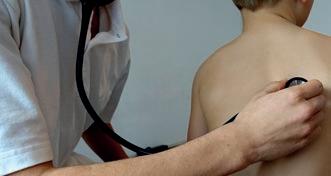
2 minute read
Parent’s Guide to Bronchiolitis

Winter. It’s that time of year for streaming colds when school & nursery children are sharing their germs and still needing reminding to ‘use a tissue’ and ‘cover your mouth’.
Advertisement
Bronchiolitis is very common in the winter months and in their first year, 1 in 3 children will develop it. Families has teamed up with multi-award-winning paediatric first aid specialists, Mini First Aid, to tell you more about what symptoms to look out for and when to seek medical help.
What is Bronchiolitis?
Bronchiolitis is most commonly caused by RSV (Respiratory Syncytial Virus) and is an infection which affects infants’ lungs. It cannot be treated by antibiotics. Most children will have caught RSV by the time they are two. Most will have a cold-like illness and get better on their own.
What are the Symptoms?
It often starts with cold-like symptoms – a snuffly nose and slightly high temperature, and over the next few days will develop into a cough, wheezy chest and breathlessness.
Most babies start to improve after 2 days and are usually better after 2 weeks, although the cough can hang on for up to a few weeks. Adults and older children can get RSV as it is very contagious – however their symptoms are usually only a mild cough or cold.
What Should I do if I am Concerned?
Young babies will always be treated with caution, so if you are concerned ring 111 for advice or if your baby is struggling to breathe or becomes unresponsive call 999. Above all, trust your instinct. Even if you have seen a doctor who tells you everything is OK, but you don’t feel satisfied or happy, then get a second opinion. You know your child best. Don’t settle unless you are 100% sure that they are ok to be at home. No one will ever tell you off for being over cautious.
However, for some babies, the smallest air passages (bronchioles) in the lungs become moist and inflamed, leading to problems with breathing. Your baby may struggle to keep any feeds down due to coughing, and may need fluids and extra oxygen to help them breathe.

Ring 111 to Seek Medical Advice if:
• Your baby is only taking half their normal feeds over several hours. •
No wet nappy for 12 hours.
• Persistent high temperature over 38 degrees Celsius.
• Breathing very fast or baby is working hard to breathe.
• Baby is very tied or irritable and not waking as normal.
Call 999 if:
• Your baby has difficulty breathing or there are long pauses.
• Their lips and tongue are turning blue.
• You can see the muscles under the ribs are being sucked in with each breath.
• You are unable to work your child or unable to keep them awake.
• Skin goes pale or blue.
For more health and safety tips for your child, or to find out about essential paediatric life-saving first aid courses near you, visit minifirstaid.co.uk





